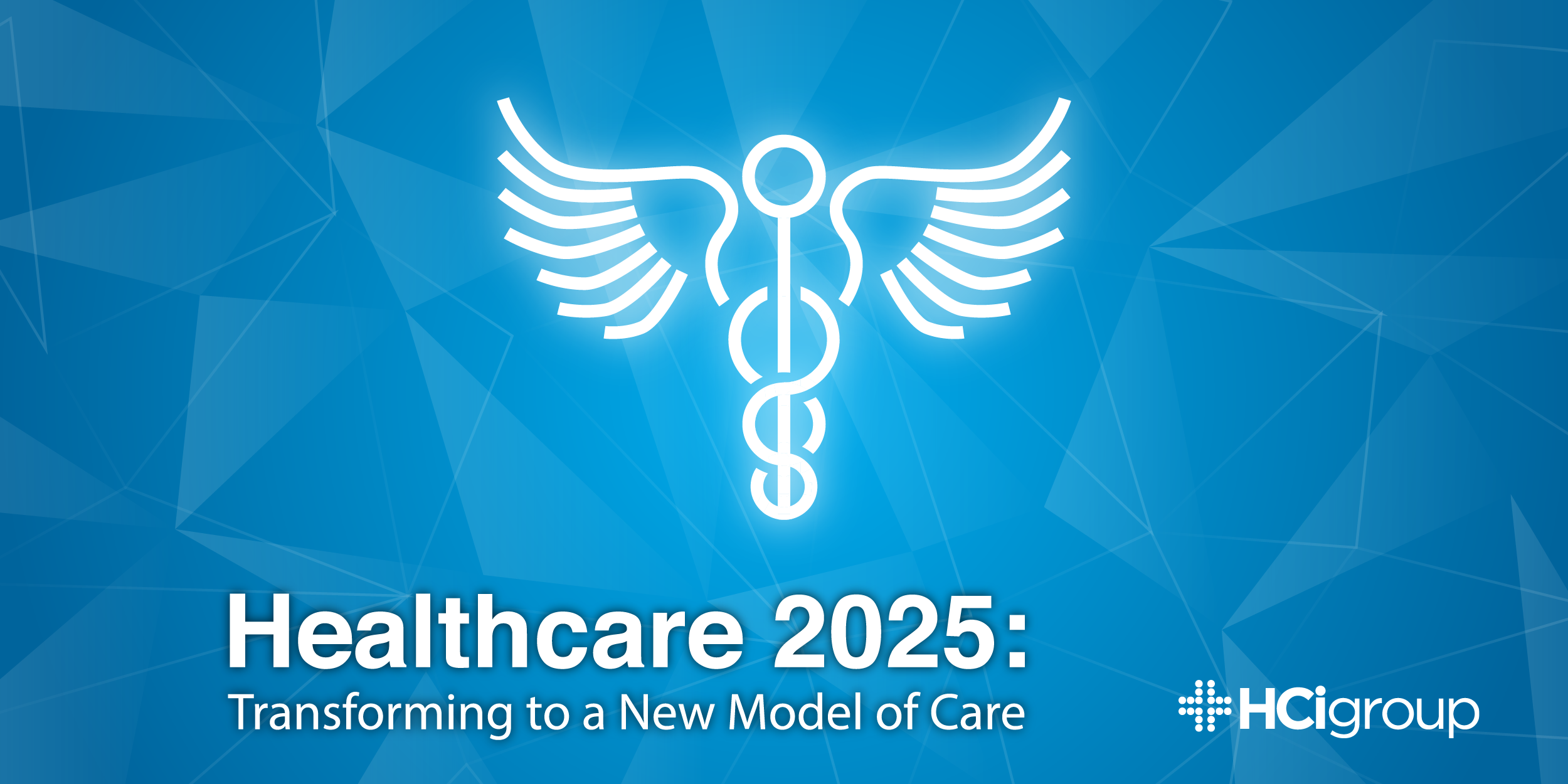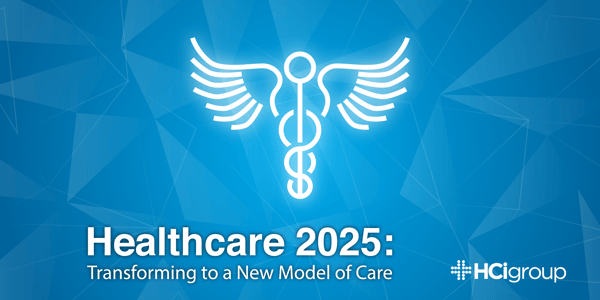Healthcare 2025: Transforming to a New Model of Care

At this point, we can take for granted that digital transformation in healthcare is well under way. Hospitals have hired CIOs, who are busy charting out Enterprise IT transformation road maps and using technology to deliver care outside their hospitals. Medical Device manufacturers are focusing on improving clinical outcomes through enhanced patient engagement. Payers are expecting value, while talking about proactive interventions and reducing re-admissions. Patients are becoming more engaged as an active participant in the care process and therefore expect more consumerism based healthcare technologies enabling proactive care/coaching.
This blog post is in preparation for the “Decoding Digital Healthcare” webinar, featuring David Chou, VP - CIO/CDO of Children's Mercy Hospital, hosted by Tech Mahindra & HCI, on December 12, 2017 at 11am EST.
Sign up for the webinar by clicking the image below...
By 2025, healthcare as it happens today will be very different. The healthcare consumer will have changed, irrevocably, the dynamics of the healthcare delivery ecosystem.
Healthcare 2025 is Inevitable
It is unsurprising that the biggest impetus for digital transformation is the healthcare consumer. As David Chou, CIO/CDO, Children's Mercy Hospital and John McDaniel, Executive Vice President of Technology & Innovation, The HCI Group discussed in their recent webinar on "The Journey Toward Digital Transformation", over a quarter million mobile health apps are available for consumers in 2016. Healthcare consumers have numerous apps that can record their health data, manage their conditions, or share their data.
Healthcare 2025 is a vision for a new model of healthcare; one that assumes disruption, embraces digital transformation, and promotes patient-centric change. Though there are many long term plans which are in various stages of implementation – Healthcare 2025 will allow healthcare providers to cure afflictions more effectively, to care for patients more efficiently and to prevent frequent occurrence and re-occurrence of illnesses. Smart health involves the use of computational technologies, smart devices, computational analysis techniques and communication media.
So, will every provider, medical device manufacturer, or payer be a digital enterprise by then? Probably not. A minority will lead, some will have adapted, some would be on the way there, the rest would be on the way out... especially for payers and medical device manufacturers. Over half the companies from Fortune 500 have ceased to exist since 2000. An inability to keep up with digital transformation will, no doubt, create more churn.
The Balance of Power in Healthcare is Shifting
The balance of power in healthcare is slowly shifting away from providers to consumers and companies who can ‘engage’ the consumers. Consumers are happy to acquire health data from wearable devices and unflustered about storing and sharing their data, arguably the most valuable asset in healthcare, to new digital and mobility startups. This puts startups on equal footing with entrenched enterprises. Where a monopoly on clinical patient data existed, there thrives a diversity of apps and systems that intend to ‘open’ them for analytics. Healthcare consumers are gravitating towards engagement and experiences and are concerned with better outcomes for themselves.
Stay tuned for our “Decoding Digital Healthcare” webinar with Tech Mahindra on December 12, 2017, where we share our vision for Healthcare 2025, and how the healthcare ecosystem can stay ahead in the race!


